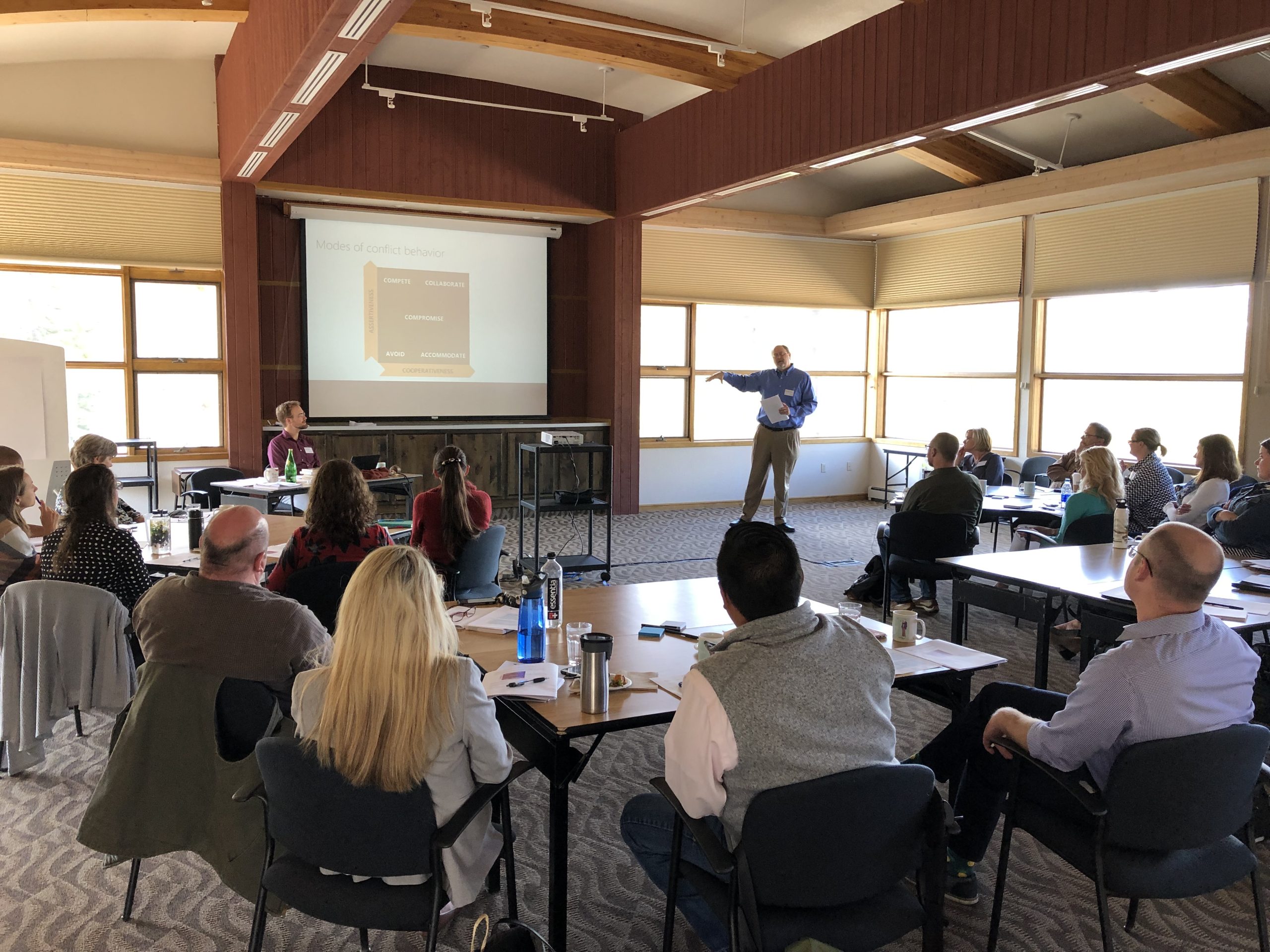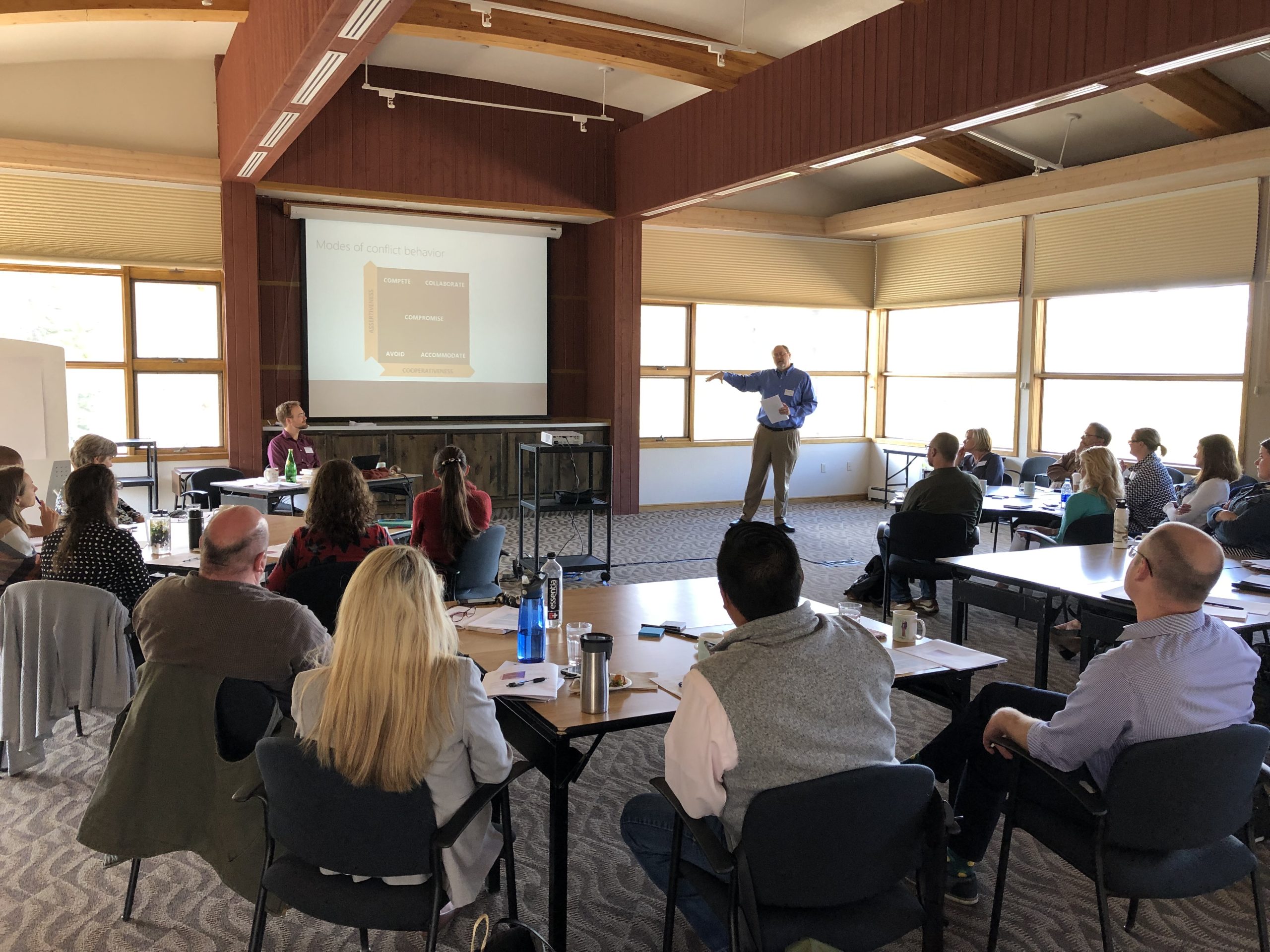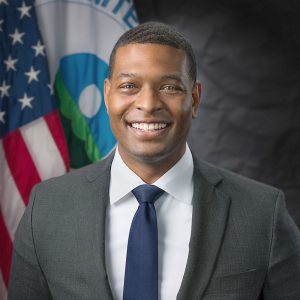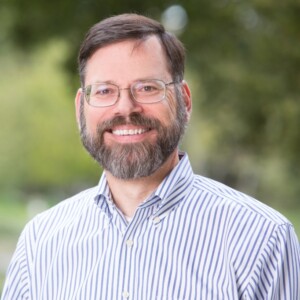Leaders Implement Collaborative Strategies Learned at Keystone’s Common Higher Ground Workshop

Esther Vincent came to a stark realization during a training workshop on facilitating collaborative problem-solving: relying on data alone will not be enough to get parties with differing perspectives to come to an agreement.
“I’m an engineer so I tend to come the table with data and facts. But one of the topics we discussed at the workshop was about shaping your message or strategy so that it also leads with values rather than only facts – and that is counter-intuitive for me,” said Vincent, who is the Director of Environmental Services for the Northern Water Conservancy District.
Vincent is referring to strategies she learned while attending Keystone Policy Center’s Common Higher Ground Workshop. The workshop is designed for leaders and emerging leaders who need to build a shared vision among stakeholders who face apparent differences.
“It is increasingly challenging to agree on what is true and even to determine the degree to which factual accuracy is valued by others,” said Brad Sperber, Director of Capacity-Building Initiatives and Senior Policy Director at Keystone Policy Center. “The inability to agree on a set of fundamental facts or on acceptable sources of information can make it very difficult to sustain a productive dialogue.”
Sperber has worked for more than 20 years assisting diverse organizations from government, industry, and civil society with solving complex shared problems. He believes now is a good time to revisit mindsets and update methods around problem solving because public conversation has become more vitriolic and less productive. Sperber developed the Common Higher Ground Workshop along with Jonathan Geurts, Senior Project Manager at Keystone Policy Center, and the two facilitated the first two-day workshop in May 2019.
“Leaders and organizations often have to deal with complicated public problems that are beyond their ability to resolve on their own. We would like to prepare those leaders, and future leaders, for those situations,” said Sperber.
“One thing that stood out to me was the idea that finding resolution or common higher ground is continually being researched and is constantly evolving,” said Ian McMahon, Director of Policy and External Affairs at Connect for Health Colorado, who also attended the May workshop. “I think that speaks to the need, as a practitioner of policy and situation engagement, to be continually refreshed on that information.”
McMahon’s participation in the workshop immediately influenced his approach to convening multi-stakeholder discussions, all the way down to the way he sets up the venue.
“One of the strategies that was discussed was setting up the physical space to reflect the collaborative nature of the exercise. So, I was very intentional in setting up the physical space to make sure the seating arrangements would facilitate a more inclusive group setup rather than everyone sitting classroom style and staring up at us as facilitators,” McMahon explained.
McMahon also paid specific attention to the language often used during discussions and laid out ground rules to avoid words that could reduce the likelihood of a productive dialogue.
“The other piece that we were able to utilize was setting expectations from the outset with the people engaging in the discussions, especially regarding word choice. We tried to anticipate some roadblocks and issues that we may have had and identified certain word choices that were natural triggers for people that may cause them to set up defense mechanisms or roadblocks,” said McMahon.
Vincent is also thinking about her approach to facilitating a series of upcoming discussions that will feature multiple parties with differing interests, priorities, and values. Her work is currently centered on collaborative processes around river and ecosystem health in the Poudre River and the Upper Colorado River watersheds.
“It can be a little overwhelming to approach these projects and these conversations because they are so complex and they involve so many people. Having some sort of roadmap to start breaking down ‘How do I approach it?’ is really helpful,” said Vincent.
Like McMahon, Vincent’s approach begins well before anyone even gets into a room.
“I was really scratching my head trying to figure out how to organize this enormous idea that is multi-faceted and start breaking it down in pieces and determining which parties are essential to the conversation. I think we have some idea, but I don’t think we have all the parties at the table. Who has the willingness, patience, and availability to engage in the needed dialogue? That is a question I’ve been posing myself as we prepare for these meetings,” said Vincent.
Both Vincent and McMahon noted that many professionals, regardless of the field they are in, face the exact same challenges of getting multiple stakeholders to collaborate and come to shared solutions.
“There were people there from the policy or practitioner landscape and we all had organizations with very different audiences, but the challenges were really the same,” said McMahon. “It was helpful to know that you are with a group of people who are trying to figure out or find an answer to the same type of problems you’re dealing with.”
Keystone Policy Center will convene future sessions of the Common Higher Ground Workshop for professionals in all sectors who want to develop strategies and build skills for effective decision-making and problem-solving within and beyond their organizations. For more information about the Common Higher Ground Workshop, or to inquire about scheduling a workshop in your area, contact Jonathan Geurts at jgeurts@keystone.org or (970) 760-0720.







 Login
Login



